
For the "Cinéma, de notre temps" collection, Jean-Paul Fargier sends his friend filmmaker Jean-Daniel Pollet a letter written to the second person.
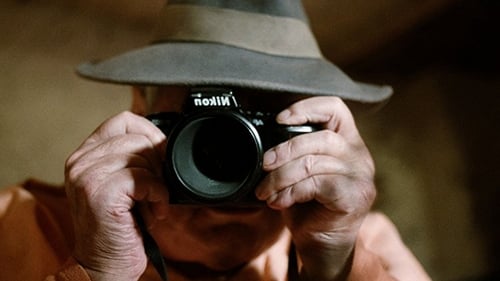
Cinematography
He inhabits the world just like he inhabits his house: motionless. A serious accident nailed him there: in a house in the middle of a large garden. No longer can he dash around the world: day after day, he contemplates it from his house. He’s a filmmaker. He’s only ever lived to make movies.

Writer
He inhabits the world just like he inhabits his house: motionless. A serious accident nailed him there: in a house in the middle of a large garden. No longer can he dash around the world: day after day, he contemplates it from his house. He’s a filmmaker. He’s only ever lived to make movies.

Director
He inhabits the world just like he inhabits his house: motionless. A serious accident nailed him there: in a house in the middle of a large garden. No longer can he dash around the world: day after day, he contemplates it from his house. He’s a filmmaker. He’s only ever lived to make movies.

Himself
He inhabits the world just like he inhabits his house: motionless. A serious accident nailed him there: in a house in the middle of a large garden. No longer can he dash around the world: day after day, he contemplates it from his house. He’s a filmmaker. He’s only ever lived to make movies.

Director
In a big isolated house, Mikael, a musician, is composing a psalm. A young woman, Linda, comes to retreive a suitcase belonging to Sébastien, her companion and Mikael's friend. It contains hundreds of photographs from all over the world. While he is travelling, Sébastien has asked Linda to organise the photographs with a view to an exhibition. Mikael invites Linda to reside with him. She accepts. That is the heart of the film – an intertwining of photographs which, juxtaposed by Linda, begin to speak. In parallel with this, Linda receives cassette-letters from Sébastien. A subtle relationship is established between Linda, the young debutante, and Mikael, the man of experience. Mikael goes off to direct his psalm, Linda stays alone. The walls become covered with photographs – wall of happiness, wall of misery – the fight between Good and Evil. Linda learns of the accidental death of Sébastien and stays alone.

Writer
In a big isolated house, Mikael, a musician, is composing a psalm. A young woman, Linda, comes to retreive a suitcase belonging to Sébastien, her companion and Mikael's friend. It contains hundreds of photographs from all over the world. While he is travelling, Sébastien has asked Linda to organise the photographs with a view to an exhibition. Mikael invites Linda to reside with him. She accepts. That is the heart of the film – an intertwining of photographs which, juxtaposed by Linda, begin to speak. In parallel with this, Linda receives cassette-letters from Sébastien. A subtle relationship is established between Linda, the young debutante, and Mikael, the man of experience. Mikael goes off to direct his psalm, Linda stays alone. The walls become covered with photographs – wall of happiness, wall of misery – the fight between Good and Evil. Linda learns of the accidental death of Sébastien and stays alone.

Writer
A homage to journalist Francis Ponge in a film that its author regarded as “natural.”

Director
A homage to journalist Francis Ponge in a film that its author regarded as “natural.”

From Provence to Greece, a journey on the mortal remains and ruins of ancient civilizations.

Writer
From Provence to Greece, a journey on the mortal remains and ruins of ancient civilizations.

Director
From Provence to Greece, a journey on the mortal remains and ruins of ancient civilizations.

Director
As a rereading of his films, "Contretemps" (in the fight against time), Jean-Daniel Pollet brings together excerpts of his films and a report by Jean Baronnet. The author Philippe Sollers and philosopher Julia Kristeva voice their thoughts.

Director
About images and photographs of real estate and specific objects of the urban landscape, a voice speaks to us of the search for something that is unknown and hidden from the view of everyone in Paris. The film starts from the disappearance of the Bièvre river to talk about the pollution problems.

Director
This film is dedicated to Mas-Félipe Delavouët, the poet discovered by Lawrence Durrell, who wrote 14,000 verses in Provençal over a period of thirty years, and who died on November 18, 1990. "The sky, history and Mediterranean and Provençal myths are the inexhaustable wellspring of this man rooted down there, near Salon-de-Provence" (J.-D. Pollet). "Mas-Félipe Delavouët wrote five books in Provençal, 14,000 verses. A sort of "Odyssey". Of myths. What is stunning in him is that he always talks of disappearances. Cities, works, men, writings, television, etc., everything has to disappear. In order to be reborn. No pain. A sort of hand-to-hand of man and nature. During the filming, I would simply throw out some words... For example, one time I said "creation" and he said: "creation doesn't exist..., creation is before me..., I can only read creation"; this sentence describes Delavouët perfectly (J.-D. Pollet, 1989 and 1993).

Director
Père Lachaise cemetery reflects the socio-economic hierarchy of French society during the second half of the 19th century. The film pays homage to the Communards who were shot and whose simple commemorative gravestone contrasts with the insolence of the monuments of the great bourgeois families.

Director of Photography
A foundry in Perche was established in 1876. This is a final homage paid to the ancestral occupation of foundrymen, whose actions have been repeated innumerable times through the years and which are now going to disappear forever.

Director
A foundry in Perche was established in 1876. This is a final homage paid to the ancestral occupation of foundrymen, whose actions have been repeated innumerable times through the years and which are now going to disappear forever.

Producer
Leon who works as a bathhouse attendant discovers a passion for the tango that will change his life. He falls in love with Fumée, a young and pretty prostitute who becomes his partner in tango contests.

Writer
Leon who works as a bathhouse attendant discovers a passion for the tango that will change his life. He falls in love with Fumée, a young and pretty prostitute who becomes his partner in tango contests.

Director
Leon who works as a bathhouse attendant discovers a passion for the tango that will change his life. He falls in love with Fumée, a young and pretty prostitute who becomes his partner in tango contests.

Producer
Spinoza, attempting to discover why his son committed suicide, meets his girlfriend and his rival for her affections.

Adam
Spinoza, attempting to discover why his son committed suicide, meets his girlfriend and his rival for her affections.

Director
Pollet provides an insight into life on the leper colony of Spinalonga, an island off Crete, through the eyes of Raimondakis, who tells the story of his life to the camera after having been excluded from his community to spend years of his life on the island with his fellow sufferers. Themes addressed include love, community, companionship and death and the importance of these values to all people whatever their state of health.

Screenplay
An alien, with the ability to travel through time, visits our planet at various eras.

Director
An alien, with the ability to travel through time, visits our planet at various eras.

Writer
An apocalyptic vision of man after a cosmic catastrophe, this film is a terrifying metaphor of a dehumanized future. The Brazilian Cinema Novo, German expressionism of the twenties, and the ideologically motivated ‘cruelty’ of a Buñuel come together in this ferocious work of a French theatre collective – an ambitious, almost completely successful example of visual cinema at its best.

Executive Producer
An apocalyptic vision of man after a cosmic catastrophe, this film is a terrifying metaphor of a dehumanized future. The Brazilian Cinema Novo, German expressionism of the twenties, and the ideologically motivated ‘cruelty’ of a Buñuel come together in this ferocious work of a French theatre collective – an ambitious, almost completely successful example of visual cinema at its best.

Director
An apocalyptic vision of man after a cosmic catastrophe, this film is a terrifying metaphor of a dehumanized future. The Brazilian Cinema Novo, German expressionism of the twenties, and the ideologically motivated ‘cruelty’ of a Buñuel come together in this ferocious work of a French theatre collective – an ambitious, almost completely successful example of visual cinema at its best.

Scenario Writer
In a cul-de-sac in the Faubourg-Saint-Antoine, Leon shares two rooms with his sister Marie. In one, he receives his clients: he is a tailor. In the other, Marie receives her own: she is a clairvoyant. Leon was happy until he learned what Marie was hiding from him. She is actually a prostitute, and Maxime, her supposed fiancé, is her pimp. On the same day, Leon also discovers love in the form of Arlette, a provincial young woman picked up by Marie.

Director
In a cul-de-sac in the Faubourg-Saint-Antoine, Leon shares two rooms with his sister Marie. In one, he receives his clients: he is a tailor. In the other, Marie receives her own: she is a clairvoyant. Leon was happy until he learned what Marie was hiding from him. She is actually a prostitute, and Maxime, her supposed fiancé, is her pimp. On the same day, Leon also discovers love in the form of Arlette, a provincial young woman picked up by Marie.

Director
In 1971, Jean-Daniel Pollet & Guy Seligmann directed for French TV a documentary about French artist César Baldaccini. It was part of L'invité du dimanche show.
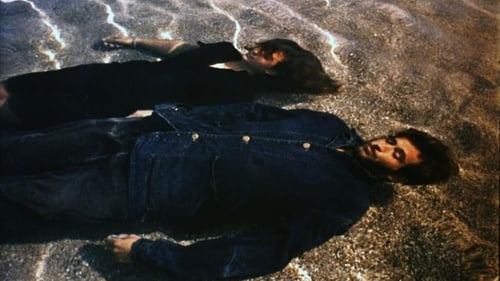
Director
A cinematographic poem in the form of variations around the theme of Robinson, a utopian fable freely inspired by Daniel Defoe's novel, which speaks above all of solitude: the immense weakness of today's man in the face of loneliness is no longer that of the hero of the eighteenth century.

Director
In 1944, in Paris, the leader of a resistance network is looking for the traitor who gave away a radio operator.

Director

Screenplay
A man who lives by himself becomes increasingly concerned that he is not alone. Based on the short story by Guy de Maupassant.

Director
A man who lives by himself becomes increasingly concerned that he is not alone. Based on the short story by Guy de Maupassant.
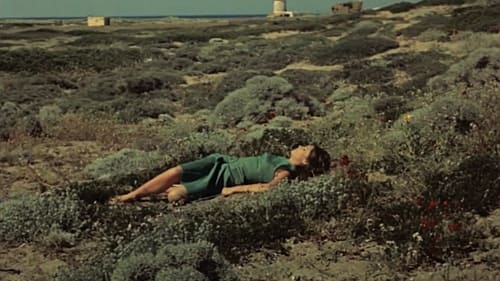
Writer
A Bullet Through the Heart (French: Une balle au cœur, Greek: Μια σφαίρα στην καρδιά) is a 1966 Franco-Greek film directed by Jean-Daniel Pollet. Francesco, a young Sicilian aristocrat, scars an aging gangster who has set out to take away his property. The gangster vows to obtain vengeance, and Francesco is forced to flee across Greece with his girl friend, pursued by his antagonist's vicious henchmen.

Director
A Bullet Through the Heart (French: Une balle au cœur, Greek: Μια σφαίρα στην καρδιά) is a 1966 Franco-Greek film directed by Jean-Daniel Pollet. Francesco, a young Sicilian aristocrat, scars an aging gangster who has set out to take away his property. The gangster vows to obtain vengeance, and Francesco is forced to flee across Greece with his girl friend, pursued by his antagonist's vicious henchmen.

Director
From antiquity to Modigliani, women's faces painted through the centuries and edited according to the theme of "Pierrot le fou", composed by Antoine Duhamel.

Director
This documentary about the cod fishing industry was filmed on a fishing boat near the Arctic Circle.
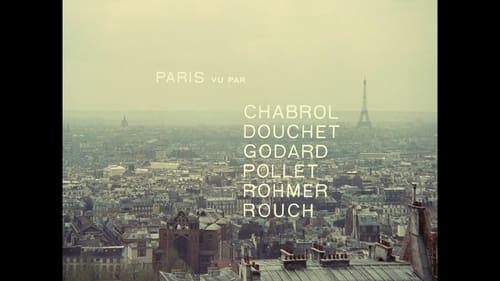
Writer
Six vignettes set in different sections of Paris, by six directors. St. Germain des Pres (Douchet), Gare du Nord (Rouch), Rue St. Denis (Pollet), and Montparnasse et Levallois (Godard) are stories of love, flirtation and prostitution; Place d'Etoile (Rohmer) concerns a haberdasher and his umbrella; and La Muette (Chabrol), a bourgeois family and earplugs.

Director
Six vignettes set in different sections of Paris, by six directors. St. Germain des Pres (Douchet), Gare du Nord (Rouch), Rue St. Denis (Pollet), and Montparnasse et Levallois (Godard) are stories of love, flirtation and prostitution; Place d'Etoile (Rohmer) concerns a haberdasher and his umbrella; and La Muette (Chabrol), a bourgeois family and earplugs.

Screenplay

Director

Self
Made for Cinéastes de notre temps series. In 1964, several French New Wave auteurs discuss the success and crisis of the wave. Featuring Claude Chabrol, François Truffaut, Jacques Rivette, Jean-Luc Godard, Jacques Rozier, Jacques Demy, Agnès Varda, Jean Rouch, and many others.

Director
"I was interested by the fact that some old guy, after the Parthenon’s glamour, devoted himself in a much smaller temple, where there was no white marble, no nothing. All Greek temples are dedicated to Apollo etc, and this particular one was not dedicated to anyone and is in a place where there never was a city nearby, in a kind of wasteland, in a ditch. But, just by going up a bit –you are in the centre of Peloponissos- on a clear day, you can see the sea on both your left and right. I went back there, at least six, seven or eight times, as if I wanted to think or find myself. So, at the temple in Bassae, I made a short 10 minute film and I was lucky enough to encounter two days of clouds and mist between the columns." —ecofilms.gr (Jean-Daniel Pollet, Tours d’horizons, Editions de l’oeil 2005)
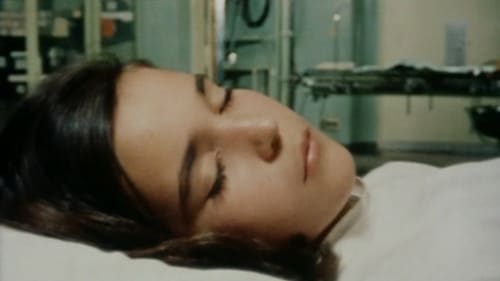
Cinematography
Pollet and Schlöndorff imagine the Mediterranean as a supernal arena.

Director
Pollet and Schlöndorff imagine the Mediterranean as a supernal arena.

Director
Gala (1961), a more polished version of Pourvu, set in a black cha-cha nightclub. Relying more upon looks, faces, and unease, rather than gags or dialogue, Pollet sets the cool elegance of the club's manager against the decidedly uncool Melki and his sartorial inadequacies. - Village Voice

Writer
Pedro returns to the castle of his childhood, inhabited by his uncle, an indifferent being who scarcely notices his presence. At the castle, Pedro wanders between the park and the salons, playing the songs he composed on the guitar. He notices strange people around the castle.

Director
Pedro returns to the castle of his childhood, inhabited by his uncle, an indifferent being who scarcely notices his presence. At the castle, Pedro wanders between the park and the salons, playing the songs he composed on the guitar. He notices strange people around the castle.

Director
Jean Daniel Pollet’ was 22 when he made his debut short movie, "Pourvu qu’on ait l’ivresse" in 1957. It is a study of loneliness set in the dance hall of suburban Paris in the 50's starring Claude Melki, a young unknown non-actor whom Pollet discovered and who would become the director’s acteur fétiche. Melki was also the central charcter in Gala which was filmed 3 years later. - TOFU magazine






